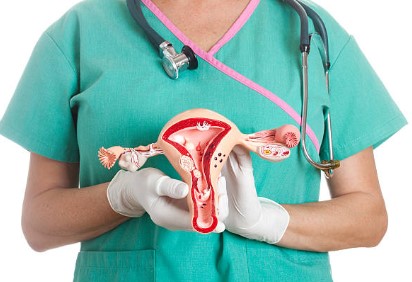In the early stages, cervical cancer may not cause noticeable symptoms. However, as the cancer progresses, some women may experience the following early symptoms.
Abnormal vaginal bleeding
This can include bleeding between periods, after sexual intercourse, or after menopause. It may be characterized by heavier or longer periods than usual.
Unusual vaginal discharge
You may notice an increase in the amount of discharge, and it may have a watery, bloody, or foul-smelling appearance.
Pelvic pain or discomfort
Some women may experience mild pelvic pain or discomfort. This pain can be intermittent or constant and may be localized to the lower abdomen or pelvic region.
Pain during sexual intercourse
You may experience pain or discomfort during sexual intercourse, known as dyspareunia. This can occur due to the presence of a tumor in the cervix.
It’s important to note that these symptoms can also be caused by various other conditions unrelated to cervical cancer. However, if you experience any of these symptoms, it’s essential to consult a healthcare professional or gynecologist for further evaluation and appropriate testing. Regular cervical screenings, such as Pap smears and HPV testing, are crucial for early detection and diagnosis of cervical cancer, even before symptoms manifest. Early detection allows for more effective treatment options and better outcomes.
What causes Cervical Cancer?
Cervical cancer is primarily caused by persistent infection with certain types of the human papillomavirus (HPV). HPV is a common sexually transmitted infection, and there are more than 100 different types of HPV. However, not all types of HPV cause cervical cancer.
The high-risk types of HPV that are most commonly associated with cervical cancer are HPV-16 and HPV-18. These types of HPV can infect the cells of the cervix and lead to changes in the DNA of these cells, eventually causing them to become cancerous.
It’s important to note that not all women who are infected with high-risk HPV will develop cervical cancer. The body’s immune system can often clear the infection on its own, preventing the progression to cancer. However, in some cases, the infection persists, leading to the development of abnormal cells that can eventually become cancerous.
Other factors that may increase the risk of developing cervical cancer include:
Lack of regular cervical screening
Not undergoing regular Pap smears or HPV testing increases the risk of undetected precancerous changes or early-stage cervical cancer.
Weakened immune system
People with weakened immune systems, such as those with HIV/AIDS or those who have undergone organ transplantation, are at a higher risk of developing cervical cancer.
Smoking
Smoking cigarettes or exposure to secondhand smoke increases the risk of cervical cancer.
Long-term use of oral contraceptives
Women who have used oral contraceptives for an extended period (five years or more) may have a slightly increased risk of cervical cancer.
Multiple sexual partners
Having multiple sexual partners or engaging in high-risk sexual behavior increases the risk of HPV infection and, consequently, the risk of cervical cancer.
It’s important to remember that HPV infection is very common, and most infections clear on their own without causing any harm. Practicing safe sex, getting vaccinated against HPV, and undergoing regular cervical screenings are important measures for reducing the risk of cervical cancer.


